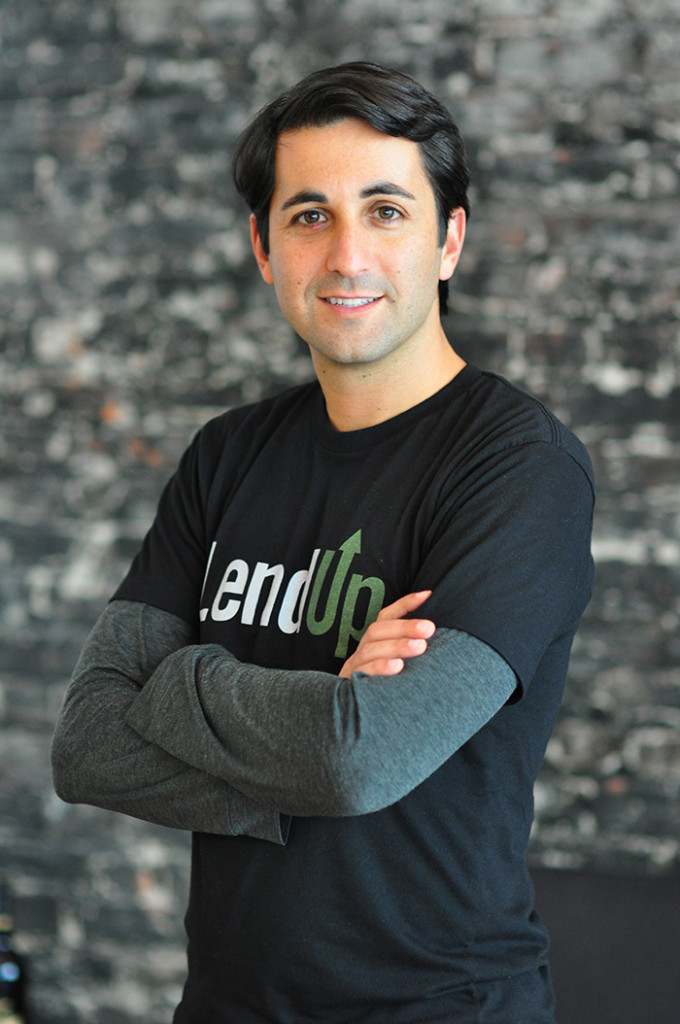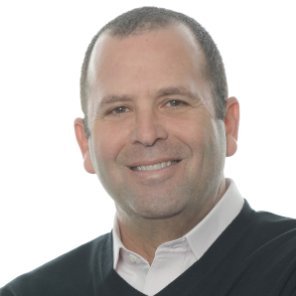Archive for 2017
As Some Alternative Lenders Stumble, Lendio Surpasses New Milestone
July 27, 2017 Salt Lake City-based Fintech startup Lendio has surpassed the $500 million threshold for loans originated to U.S. small businesses through its online marketplace. Lendio has been on a tear, evidenced by the fact that much of that amount, or $453 million, was done in the past two years.
Salt Lake City-based Fintech startup Lendio has surpassed the $500 million threshold for loans originated to U.S. small businesses through its online marketplace. Lendio has been on a tear, evidenced by the fact that much of that amount, or $453 million, was done in the past two years.
The loans were distributed to 21,000-small businesses, including a combination of new customers and repeat business, and are a reflection of a few different catalysts.
Lendio CEO and founder Brock Blake told deBanked the drivers of Lendio’s growth are three-pronged, pointing to a strong economy, greater awareness of the Lendio brand and good partnerships.
“There’s never been a better time for small businesses to access capital. There are plenty of options out there. The economy is strong and healthy. Economic indicators suggest business owners are optimistic. They’re looking to get capital for growth,” he said.
Meanwhile awareness of the Lendio brand is on the rise.
“We see that on all of our metrics. People are finding us organically online, searching the name Lendio. We have a huge amount of customer referrals from existing customers. And a lot of repeat business. Our customers are coming back to us every three quarters, on average,” said Blake.
Lendio has become more ubiquitous thanks in part to some major partnership deals, the third leg of the growth stool. For instance, the small business lending startup has inked partnerships with the likes of Comcast, GoDaddy and Staples. This helps the company to compete with the likes of Amazon.
‘All of those partners have a base of small business owners that they then refer to Lendio. They say, ‘if you need financing, here you go. Here’s Staples powered by Lendio. Or Comcast powered by Lendio,’” explained Blake
And that pipeline is filling quickly.
‘We definitely have some really exciting partner deals in the works. I can’t mention names but there are at least three more big names that we’re working on, that we’re excited about,” said Blake.
Tech Platform
Lendio puts the tech in fintech by developing the technology infrastructure that facilitates the loan process, both for the small business owner and the lender. The lending process is similar to LendingTree for personal loans with some notable differences to the customer experience.
Instead of selling off a borrower’s information to lenders, Lendio assigns a funding manager to work with both the borrowers and the lenders. Once the small business owner fills out the application, Lendio then goes to work. The Lendio marketplace is comprised of around 75 different lenders.
“We pull credit. We connect with the credit bureaus. We pull bank statements. We connect with Google Local. We build the technology that has hooks into all borrower data and the lender underwriting engines. We’re trying to marry those two and make it a good experience for both sides,” explained Blake.
Lendio submits the information to three-to-five lenders that will provide the best loan options for that business owner. The lenders then decide whether they choose to underwrite the loan or decline.
“We go to the customer and say we have compiled three offers. Here’s the rate, etc. We present it in a way that they have a choice and they are in the driver’s seat. They work with one group and that’s Lendio. We do all the work,” said Blake.
The process is free to small business owners. Lendio generates revenue at the time the loan closes. “Lenders pay us an origination fee,” Blake explained, adding that the average loan size on the Lendio platform is $26,000. “We do loans as small as a couple thousand dollars and as high as $3 million. But most business owners don’t need a few million,” he said.
The Utah Connection
Utah has been coming up in the headlines a lot lately, mostly due to the fact that a couple of fintech lenders have applied for bank charters in the state. For Lendio, The Beehive State happens to be where Blake calls home.
“Utah isn’t necessarily the place to go and attract huge amounts of small business owners from a population standpoint. But from an economic and business perspective, it is a great state to do business in, very entrepreneurial. That’s the reason why bank charters set up shop here in Utah. It’s very business friendly. And the economy is extremely healthy,” said Blake, adding that the mountains and the skiing are great selling points for attracting top fintech talent everywhere from Silicon Valley to Chicago.
Future Growth
Lendio is a private company, and while Blake would not cross an IPO off of his list he wouldn’t say it’s something the fintech startup is pursuing right now.
“We’ve got an aggressive growth plan and we’ve got a strategy for how to execute and make it happen. We’re heads down to build a great business and see what the future holds for us as far as going public. But it’s not on our radar now,” said Blake.
Becoming a Bank – Varo Articulates the Leap from Fintech to Banking
July 26, 2017
Varo Money wants to become Varo Bank. The completely mobile-app driven fintech startup already lets customers juggle financial tasks with the touch of a button but now they want to make it official.
Varo has applied for a full national bank charter with the bank’s headquarters in Utah in hopes of becoming a national bank. Varo is the second fintech startup to apply for a bank charter in as many months, with the SoFi application still pending, though there are key differences to the design of each application.
Colin Walsh, co-founder and CEO of Varo Money, took some time to discuss the bank charter application with deBanked, offering his take on how the future of banking is moving toward mobile and reviving the banker relationship, which has gotten lost along the way.
deBanked: Why a bank charter and why now?
Walsh: We founded Varo with a specific vision: to be an indispensable financial guide for customers, with a full suite of banking and financial products. Our founding intention was to create a bank that made it easier and more affordable to manage money. We’ve been in conversations with the regulators for a number of months, and we completed the “pre-application” process. In the past year the regulators’ openness to new de-novo bank charter applications has shifted.
deBanked: Was SoFi’s recent move to similarly apply for a bank charter any inspiration for you?
Walsh: SoFi’s filing did not affect our process; we’ve been in conversations with regulators for months (see above answer). In addition, SoFi applied for a different type of charter than we did. They applied for a state-chartered ILC, which tend to be used by subsidiaries of companies whose primary business is not banking. We applied for a national bank charter to become a full-service national bank.
deBanked: Have you faced any backlash since applying for the bank charter?
Walsh: Not so far. Varo was founded to make it easier and more affordable for customers to manage their money and improve people’s financial lives. We believe that integrating traditional bank products with modern technology (predictive analytics, contextual alerts/notifications, auto-savings, visualizations) is the best way to achieve this outcome. While it brings a new breed of competition, we believe it is the future of banking and is ultimately in the best interest of consumers.
deBanked: Is Varo 100% smartphone banking? For iOS and Android? What type of growth are you experiencing?
Walsh: We also offer service through Interactive Voice Response and phone. We pushed our iOS app into the Apple App store [in] mid-June and are already experiencing very strong demand.
deBanked: Does Varo issue loans and are they from your balance sheet?
Walsh: Yes and yes. Varo makes unsecured loans to customers in states where we have lending licenses.
deBanked: You come from traditional banking, correct? What do you think of this shift toward online and now mobile banking/lending? Are traditional banks going to be left behind?
Walsh: That is correct, I spent 25 years with traditional banking and financial services companies. 92% of all adults ages 18-36 own a smartphone, and modern technology opens up the possibility of a personal banker in your pocket. The game is changing. Banking used to be a relationship business — but most banks have gotten too big to help the bulk of their customers solve everyday problems and get ahead.
Many incumbent banks aren’t able to make the technological changes that customers of the future will demand. Instead of making step-changes to their technologies, they continue to iterate on the same products and channels that serve the same customers in silos, without imagining what the future of banking could look like.
Varo will be the first entrant to truly challenge the existing banking model. Varo combines proprietary technology and integrated financial solutions to bring relationships back to banking for everyone, all on your phone. Varo is a bank designed around solving financial problems, not pushing products. There’s room for everyone, it’s a very big market, but Varo aims to raise the bar for what consumers should expect from their banks.
deBanked: Do you work with any bank partners?
Walsh: Yes, we have great partnerships with The Bancorp Bank, who serves as our sponsor bank for Varo Money’s current business, and Silicon Valley Bank, where we have our main bank account and a venture debt facility.
deBanked: Are consumers ready to make the shift to 100% mobile banking?
Walsh: We’ve seen that many customers are willing and ready to make the shift. Varo’s vision is that everyone deserves a personal banker in their pocket. Access to financial guidance should be instant when a customer needs it and not bother them when they don’t. We want to reduce stress through financial empowerment so that our customers can fulfill their ambitions, stop worrying and go live their lives.
Just like Amazon disrupted retail by providing instant shopping in a customer’s hand, banking in the future (and even today) doesn’t have to be about geographic coverage anymore. We believe that the future of banking is about providing an on-demand solution that gets customers from A → B with minimal friction and maximum delight. Once customers experience how easy and affordable Varo is, traditional banks seem outdated. Trust, safety, and security are requirements for our business that we take very seriously.
PayPal & LendUp Bridge Financial Inclusion Gap
July 25, 2017
PayPal put its stamp of approval on fintech startup LendUp, evidenced by a strategic investment by the eBay spinoff in recent weeks. In doing so PayPal demonstrated its commitment to non-prime borrowers, which is the demographic that San Francisco-based LendUp targets.
The pairing brings together the chief executives of two companies – Sasha Orloff and Dan Schulman of LendUp and PayPal, respectively — who have been at the forefront of fintech and who together will likely play an expanded role together.
“People care about the ability to build credit and about having a safe product and a really great user experience. We are aligned with PayPal there. Dan is a pioneer in financial inclusion. He is a ringleader in the industry. There is an exciting momentum from an executive leader with a voice for financial inclusion from one of the largest and most successful fintech companies,” Orloff told deBanked.
PayPal’s mission is similar.
“LendUp and PayPal share a vision of reimagining financial services and offering innovative solutions to people typically underserved by the traditional financial system. PayPal has made a strategic investment in LendUp to help this fintech innovator continue to grow and broaden its positive impact on improving financial health,” according to a PayPal spokesman.
LendUp focuses on the emerging middle class, including those who were left behind in the wake of the financial crisis. Orloff pointed to a macroeconomic shift beginning in 2008 with the creation of Dodd Frank, which is contributing to a deep well of financial exclusion. “More than half of the country has a credit score below 680 and are excluded from many bank products,” Orloff added.
Meanwhile as online lending has taken root banks have demonstrated a stubborn inability to become tech focused
Second Time Around
Orloff and Schulman are no strangers to one another. Previously the LendUp chief was senior vice president at Citi Ventures, Silicon Valley’s maiden venture capital firm for early stage fintech, while the PayPal president and CEO served as group president of enterprise growth at American Express.
“Through the process I met Dan Schulman [then] at American Express. He was a big champion of financial inclusion. He had been tooting the horn at AMEX for a long time and had been leading their financial inclusion revamp,” said Orloff.
While at Amex Schulman was LendUp’s executive sponsor before taking the helm at PayPal. Soon after the teams reconnected and recognized even more possibilities beyond the PayPal ecosystem, such as providing access to credit and helping borrowers to build a credit score. There is also the massive PayPal database to consider.
“PayPal has a bigger reach and a more relevant audience,” said Orloff, declining to tilt his hand to the specific ways in which LendUp and PayPal will partner. “We have a lot of conversations in the works. That is absolutely part of the investment and we are excited,” noted Orloff.
LendUp earlier this year surpassed the $1 billion threshold for loan originations since the company was founded half a decade ago.
“We are a balance sheet lender,” said Orloff. “But we just continue to grow so quickly that we’re going to need to diversify our funding sources over time. We set up structures to do that now, and [investor] Victory Park is an amazing supporter,” said Orloff, pointing out that LendUp just doubled its access to capital with a $100 million credit facility to fund loan growth. “Eventually we will outgrow them as a single funding source. And that will come up soon.”
LendUp’s trifecta of offerings include credit cards, loans and financial education. The education is delivered via online videos and courses that highlight how much bad credit can cost borrowers, evidenced by $250,000 in fees paid by an average consumer with bad credit over their lifetime, according to LendUp stats. LendUp provides tools to help people to improve their credit score, ultimately making it easier and cheaper to borrow money. LendUp has saved its customers nearly $150 million in fees and interest.
Meanwhile LendUp and Beneficial State Bank recently announced an expansion of their credit card, the L Card, which should quadruple the availability of the Visa product.
“We launched the card recently and already by just having a simple and transparent credit card we’ve gotten a top rating in the credit card space,” said Orloff, adding that there is more to come. “We are going to completely revolutionize what credit cards mean for the emerging middle class. We are going to bring innovation that has not happened before. We are almost ready to launch and share that.”
Orloff expects that LendUp will grow in “overwhelming influence” over the course of the next year.
Grameen Bank Effect
For his part, Orloff has always had a penchant for helping the poor, evidenced by his efforts with the Grameen Foundation supporting financial services in rural and under-served areas. His work with the foundation was inspired after reading Nobel Peace Prize winner Dr. Muhammad Yunus’ book Banker to the Poor.
From there he moved on to Citi, where he did credit underwriting before joininig Silicon Valley’s maiden venture capital firm for fintech, Citi Ventures. In 2012 LendUp was born and Orloff has been determined to provide good structured products with embedded education that can help to make people more successful ever since.
Bizfi Founder Stephen Sheinbaum Joins World Business Lenders
July 24, 2017
 Stephen Sheinbaum has joined NJ-based World Business Lenders as a managing director. Sheinbaum founded Bizfi (Originally Merchant Cash and Capital) in 2005 and served for years as the company’s CEO. Former Lending Club exec John Donovan has been the chief executive of Bizfi since October 2016 and still holds that post.
Stephen Sheinbaum has joined NJ-based World Business Lenders as a managing director. Sheinbaum founded Bizfi (Originally Merchant Cash and Capital) in 2005 and served for years as the company’s CEO. Former Lending Club exec John Donovan has been the chief executive of Bizfi since October 2016 and still holds that post.
In a call, Sheinbaum said that World Business Lenders has a world class team and that he was proud to be joining it. He will be overseeing the company’s production from the Jersey City headquarters. The company reportedly has plans for expansion and product innovation.
Sheinbaum referred to himself as a builder and said that WBL will afford him the opportunities to execute.
Revisiting Funding Circle
July 21, 2017Funding Circle’s SME Income Fund delivered profits last year not only in the UK segment, but also in the US segment, according to sources. As the UK is Funding Circle’s home market, it naturally generated more revenue from it, but the margins were actually a lot higher in the US. The Fund’s 12-month calendar year ended on March 31st. The performance doesn’t reflect Funding Circle’s operations as a whole, just the publicly traded fund used to make loans through the company’s platform.
The fund’s Net Asset Value has reached £164.8M, Peer2Peer Finance News reported. Investors received dividends equal to 6.5 pence per share over the last year.
Funding Circle the company, has not filed its year-end 2016 financials yet. As a private limited company in the UK, they’re still a couple months away from the deadline to do so. In 2015, they lost £18M on £23.8M in revenue, which they attributed to their growth strategy.
Unlike with Lending Club and Prosper, anyone investing in a Funding Circle loan in the US must be accredited. Funding Circle Securities is the affiliated broker–dealer of Funding Circle USA. Lending Club and Prosper have a special arrangement with the SEC to work with retail investors. As part of that, every single loan on their platforms must be filed with the SEC as an individual security complete with a full prospectus.
Earlier this month, Funding Circle hired a new Global CFO, Sean Glithero, who was previously the CFO at Auto Trader.
Russian Billionaire Is Betting Big on Fintech (And Online Lending)
July 20, 2017
Russian billionaire Oleg Boyko is putting his chips on fintech. According to an announcement made by one of his companies, Finstar Financial Group, on Wednesday, he is committing $150 million of new capital towards financial technology startups over the next 5 years. And that money may be aimed at online lenders if his past investments are any indication.
A sample of Finstar’s investments:
- Spotcap – online business loans – UK, Australia, Netherlands, New Zealand, Spain
- Euroloan – consumer finance – Finland, Poland, Sweden
- Viventor – peer-to-peer lending marketplace – European Union
Boyko’s Finstar may have also crossed paths with online business lending in the US. In 2015, a venture capital fund identifying itself as Qwave Capital, attempted an unsolicited takeover of Kennesaw, GA-based IOU Financial. Though IOU only lends to small businesses in the US, it’s actually listed on the Toronto Stock Exchange where it’s valued at less than a dollar per share. In the ensuing battle for majority control of the company, IOU revealed that it had not only sued Qwave, but also sued a company using the Finstar name. Some quick online research showed that the owner of Qwave, Serguei Kouzmine, has run some of Boyko’s companies in the past, including a role at Finstar Financial Group.
While the takeover of IOU was unsuccessful, Qwave was at least able to acquire a significant stake. That wasn’t Kouzmine’s only foray into US-based lending companies either. Qwave now acts as the general partner of the FinTech Ventures Fund, LLLP. That entity lists not only IOU Financial among its investments but also Chicago-based LQD Business Finance, Atlanta-based Groundfloor and NYC-based Fundthatflip.
‘Debt Relief’ Company is Allegedly Robo-dialing Out Of Control
July 18, 2017 A lawsuit brought by famous serial TCPA plaintiff Craig Cunningham against defendants who allegedly robo-dial with offers for small business debt relief services, has a new twist, according to recent court records. That is that the defendants allegedly continue to robo-dial Cunningham despite having been served with the suit from him. All told, Cunningham says he has received at least 105 automated calls for the defendants’ business debt relief services despite the fact that he doesn’t even own a business.
A lawsuit brought by famous serial TCPA plaintiff Craig Cunningham against defendants who allegedly robo-dial with offers for small business debt relief services, has a new twist, according to recent court records. That is that the defendants allegedly continue to robo-dial Cunningham despite having been served with the suit from him. All told, Cunningham says he has received at least 105 automated calls for the defendants’ business debt relief services despite the fact that he doesn’t even own a business.
Cunningham filed an amended complaint that also added new defendants alongside Mark D. Guidubaldi, Corporate Bailout and Protection Legal Group. They include Sanford J. Feder and Cashflow Care, LLC.
Cunningham was one of several TCPA litigants referenced in a featured story deBanked published about TCPA lawsuits last October.
Protection Legal Group, meanwhile, was cited in another brief where a small business owner sued them for allegedly not providing the debt relief services promised. According to the docket, Protection Legal Group has yet to file an answer to it.
Debt relief and debt settlement services have become a booming business as of late, but it’s a risky endeavor. Earlier this year, four individuals were arrested when they did not actually attempt to negotiate the MCAs or business loans they were paid to assist with. One of those arrested is still in prison awaiting trial. He is facing a maximum of 30 years.
Former Bizfi COO Now at iPayment
July 18, 2017Former Bizfi chief operating officer Tomo Matsuo is now a senior vice president at iPayment, according to LinkedIn. Matsuo worked at Bizfi from February 2011 until June 2017. In addition to running the company’s operations, he was also president of Bizfi’s Asia affiliate.
Last month, iPayment, a payments company with more than 140,000 customers, entered into a partnership with RapidAdvance to be their de facto small business funding provider.





























